Common Insect and Animal Pests by Region
What's digging up your lawn, eating your vegetables or destroying your flowers? The identity of the destructive culprits depends on where you live and what's in your yard. Although insect and animal pests are problems nationwide, certain areas of the country are more prone to vermin. Here are some of the most common insect and animal pests and ways to get rid of them by region.*
PACIFIC NORTHWEST
Slugs and snails: Both shell-less slugs, which are members of the snail family, and shelled snails love the moisture of the Pacific Northwest region and leave behind a slimy trail of damage as they eat through leaves and vegetables. Although the destruction tends to be cosmetic, a severe infestation of either snails or slugs can wreak enough havoc to kill a plant.
Designation: nuisance and harmful.
Remedy: There are several options to get rid of slugs and snails. You can start by applying a slug/snail removal bait product, such as Corry's Slug & Snail Killer; these easy-to-use pellets work for two weeks.
There are more labor intensive methods available, too. You can remove slugs and snails from plants by hand first thing in the morning, and then drop them in a pail of soapy water to kill them. Repeat until the pests are no longer present. Finally, encourage birds and beneficial insects by including plants suitable for the region and maintaining a healthy landscape.
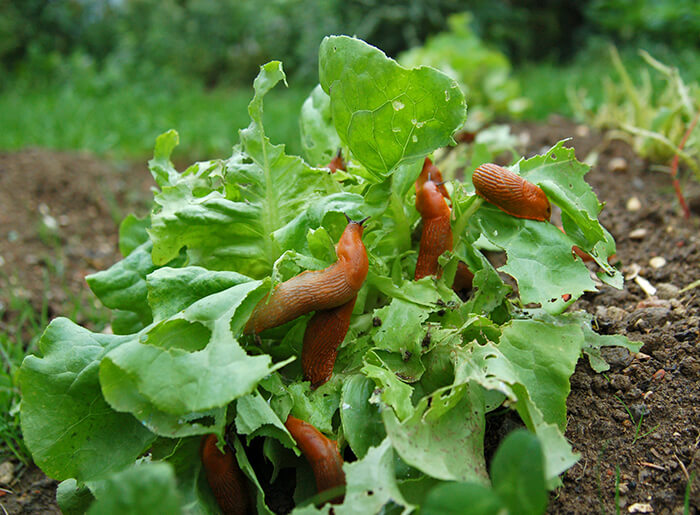
Although slugs can be picked off by hand, it's a tedious, time-consuming task. Pellet bait remedies can help keep these mollusks from destroying plants.
Aphids: Pests that target inside and outside plants, aphids are small, long-legged insects that feed on leaves. They leave behind a sticky residue that yellows leaves and stunts plant growth
Designation: nuisance and harmful.
Remedy: Encourage beneficial insects, such as lacewings and ladybugs, by including plants suitable for the region and maintaining a healthy landscape. Protect gardens with row covers and remove when plants are healthier. Finally, rinse plants with daily doses of water. If this gentle approach fails, you can turn to Amdro pest control products to treat infected plants.
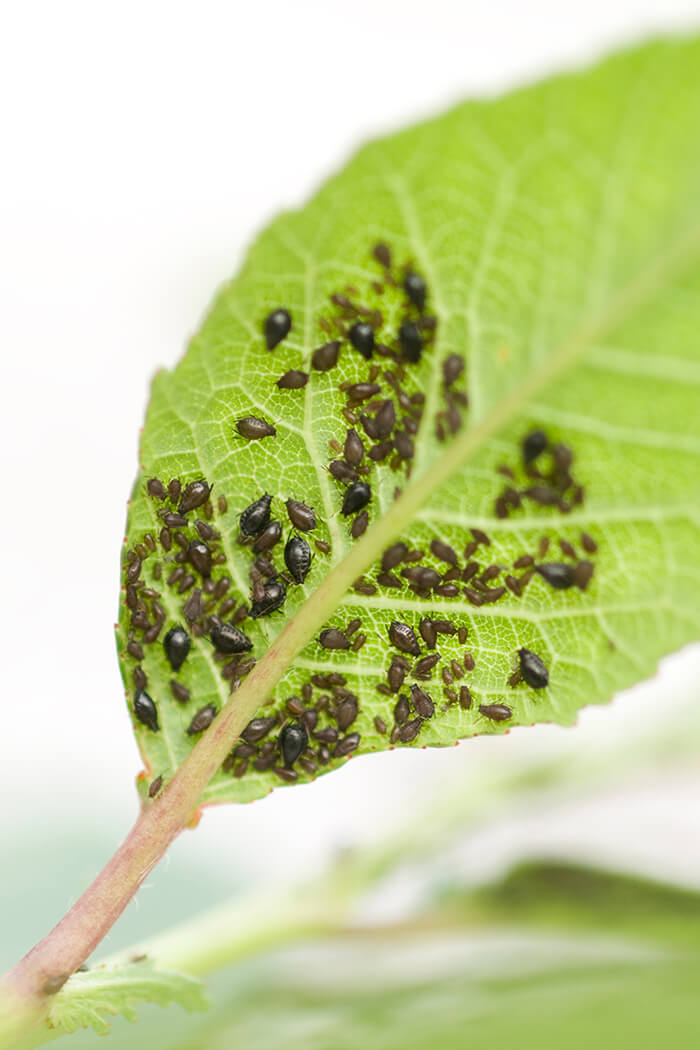
Voles: Often mistaken for a mouse, a gopher or a mole, a vole is a small rodent that burrows and eats plants, nuts and roots. The damage caused by voles is three-fold: They girdle trees and seedlings, destroy plants in garden beds, and create extensive tunnel systems that can ruin lawns. In addition, voles are prolific breeders; they can take over landscapes with large infestations.
Designation: nuisance and harmful.
Remedy: Protect trees with wraps, and then adjust the wraps as trees grow. Be sure to maintain a healthy, debris-free yard and use locally-approved baits according to directions.
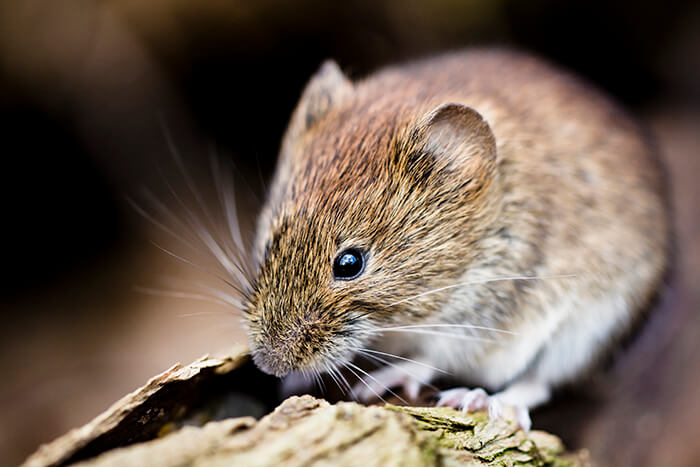
With small eyes and a long tail, voles are often mistaken for other moles and gophers.
South
Fire ants and carpenter ants: A danger to plants, animals and people, fire ants are particularly invasive in areas with warm climates, such as Florida and Texas. They deliver painful bites that sting, transmitting venom that can be deadly. Fire ants create mounds and can kill trees and non-nuisance wildlife, while carpenter ants, if left untreated, can tunnel into wood-framed homes and create structural problems.
Designation: harmful.
Remedy: For fire ants, use Amdro Fire Ant Killer for Mounds and Amdro Fire Ant Killer for Lawns. For carpenter ants, use Amdro Ant Killer for Outdoor Home Perimeter Ant Bait.
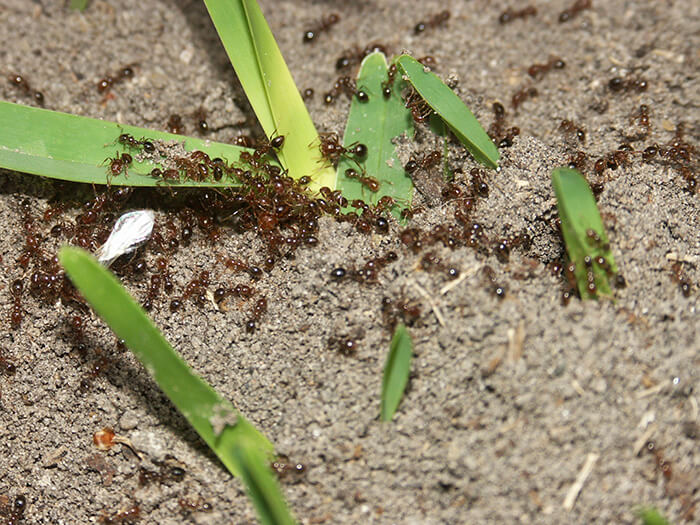
Texas fire ants on St. Augustine grass.
Tomato hornworms: A caterpillar with a signature “horn" on its head, the tomato hornworm makes quick work of plants, particularly vegetables in the Solanaceous family, including tomatoes. Tomato hornworms are long—about four inches—and transform into moths. Because tomato hornworms eat both leaves and fruit, they can decimate crops.
Remedy: Pick hornworms off plants by hand, and then drown them in a bucket of soapy water; keep your garden healthy and weed-free; and encourage beneficial insects, such as parasitic wasps, by including plants suitable for the region and maintaining a healthy landscape.
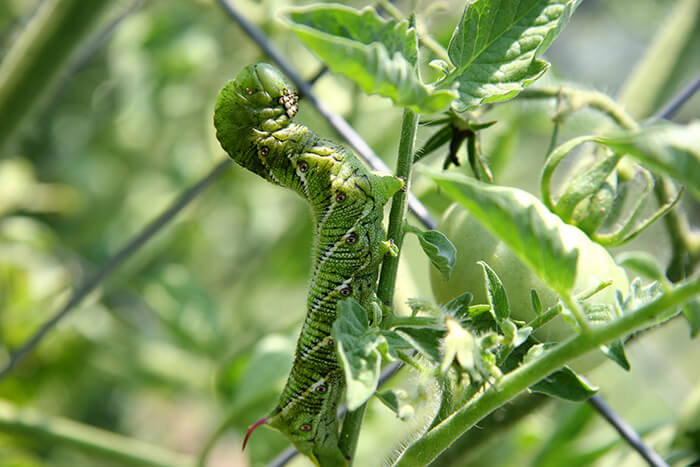
Hornworms, if left unchecked, can quickly decimate tomato plants.
Grasshoppers: Hard to catch and voracious, grasshoppers make quick meals of plants and flowers.
Designation: nuisance and harmful.
Remedy: Use Amdro Quick Kill Insect Killer for Lawn & Landscape, available as Ready To Use or Concentrate, to treat ornamental shrubs and flowers. Apply row covers to protect plants until they are healthy, and encourage an opportune growing environment with mulch, proper moisture and by controlling weeds.
MIDWEST
Squash bugs: Unattractive, gray and squat, squash bugs are hardier than you might think. They overwinter in soil and emerge with the warm weather to decimate a variety of crops, including squash and pumpkins. Squash bugs suck the sap out of leaves, which causes wilting and plant death.
Designation: nuisance and harmful.
Remedy: Avoid overwatering plants and practice healthy growing habits. Also practice crop rotation from year to year.
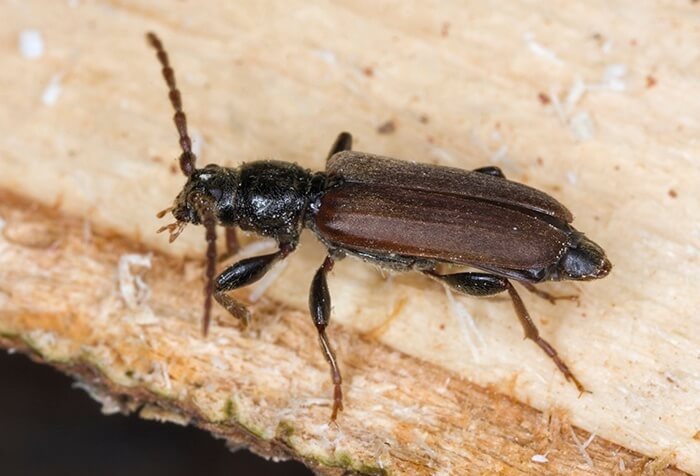
Squash bugs live in the soil year to year, making crop rotation an essential step to getting rid of this nuisance insect.
Spiders: Outside, spiders are a homeowner's good friend. They generally eat other nuisance and harmful insects and, in most cases, do no harm to humans. Some spiders bite and deliver painful venom, however, especially when they feel threatened.
Designation: nuisance, in most cases; generally helpful.
Remedy: Apply Amdro Quick Kill Ant & Spider Killer granules around the home perimeter; keep yard and home free of debris; clear or trim plants so that they do not crowd the perimeter of your home; and seal any cracks in the home foundation.

If possible, move spiders found in the home to outside, where they can do more good than damage.
Deer: Reduced habitats and prolific breeding have led to an explosion of deer in populated areas. Deer are often destructive, eating everything from small flowers to trees in all seasons.
Designation: nuisance and harmful.
Remedy: Repellants only work for a short period of time, so add fencing and consider species of plants less palatable to deer.
NORTHEAST
Japanese beetles: Japanese beetles have spread from the northeast to the west. They're voracious, with a wide-ranging appetite. They eat the leaf between veins and can decimate landscape plants, trees and flowers.
Designation: nuisance and harmful.
Remedy: Use Amdro Quick Kill Insect Killer for Lawn & Landscape, available as Ready To Use or Concentrate, to treat ornamental shrubs and flowers.
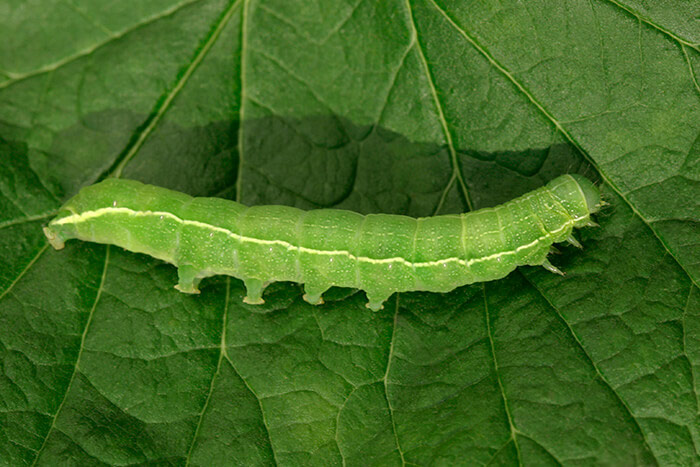
Their telltale green color provides cabbageworms a useful disguise.
Cabbageworms: Prodigious destroyers of vegetable gardens—particularly anything in the Brassica family, including Cabbages, Brussels Sprouts and Broccoli—cabbageworms move slowly along plants, eating leaves and leaving droppings.
Designation: nuisance.
Remedy: Keep your garden free of debris and weeds; adequately water to encourage beneficial insects, such as parasitic wasps; and use row covers to protect plants until they are healthy.
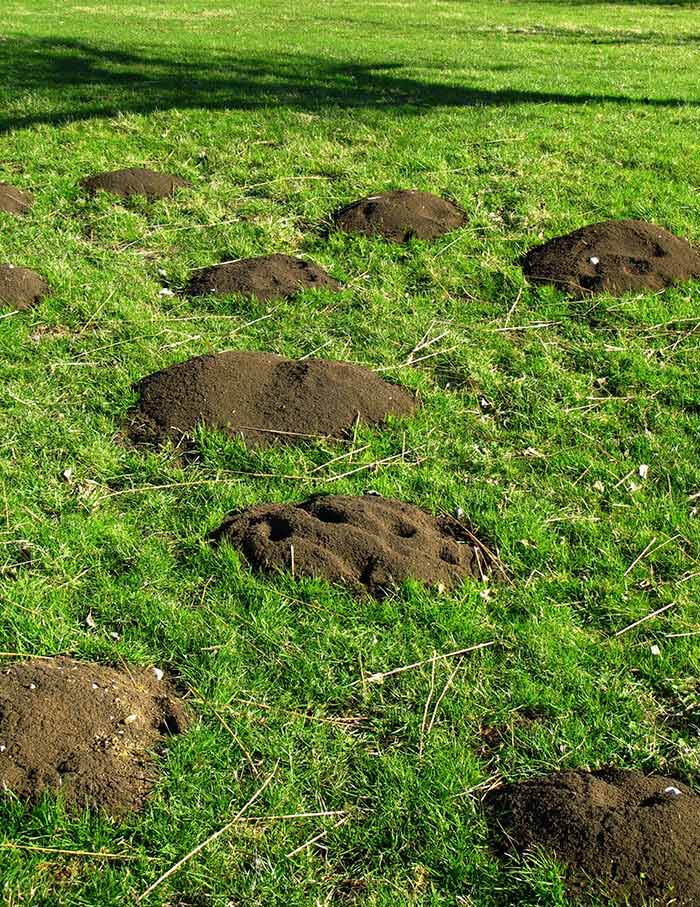
Moles and gophers: Moles live underground where they eat grubs and dig seemingly endless tunnels, destroying lawns from below. Gophers, on the other hand, live above ground and quickly eat through garden beds in a constant search for food.
Designation: nuisance and harmful.
Remedy: Use Amdro Gopher Gasser, Amdro Mole* & Gopher Bait and Amdro Gopher Trap as necessary to remove these pests from your yard.
* Remedy time and difficulty will vary by the size of the garden or yard; most involve taking simple steps. Follow all product label recommendations to ensure the greatest chance of solving the problem.



